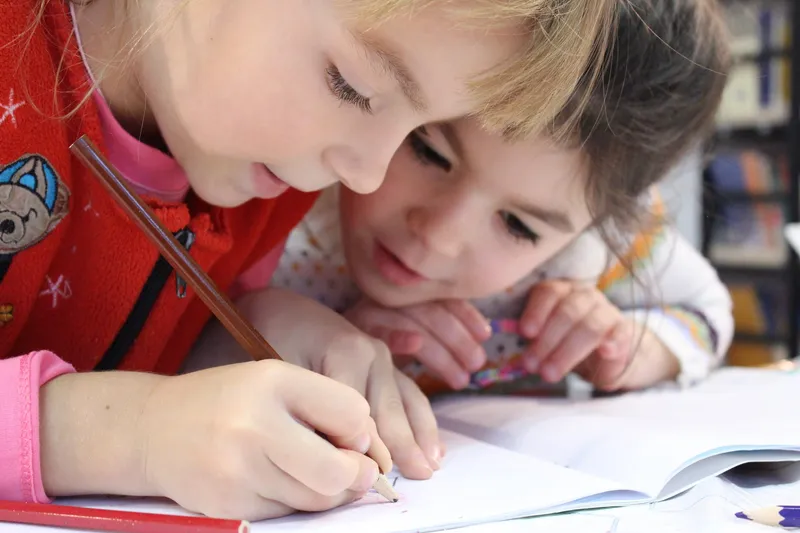

So you didn’t anticipate being confined indoors with your children for an indefinite period of time, did you? And while you’re dealing with your own anxiety about the pandemic, you have the additional stress of making sure your children are safe, healthy and stress-free. So we decided to put together a tool-box of tips and tricks in every area of child care for you to use and turn this period of isolation into a bonding opportunity!
HEALTH
Hygiene and health are paramount in this situation. Here are some ways you can ensure that your children stay healthy and safe from infection.
Knowledge is power
It may be hard to talk to your child about what’s happening. They may have heard of the term, but do not understand its implications. A lot of parents are not talking to their children directly about the Coronavirus because they think that they will not understand and it will cause them additional stress. But the fact is that talk about the virus and the pandemic is everywhere. You are probably talking about it with other members of the family several times a day!
So the kids already know, but they probably don’t know the whole story and they might fill in the gaps with their own imagination. All the fake news circulating is not helping either! Therefore, to ensure that they follow all hygiene instructions, sit them down and have a “health meeting” with them. Use diagrams or educational videos (make sure they are authentic, preferable from the World Health Organisation) and explain the origin of the virus, its effect and its modes of contagion. Address any questions the kids might have clearly and factually. Once they know about it, they will adopt all the measures required to protect themselves without you having to run after them!
Accessible aids
The best way to ensure a constant hygiene process is to make sanitizers, soaps and reminders available all through the house. When they are playing or engaged in an activity, sometimes children get lazy to get up and go to the washroom to wash hands. Have little bottles of sanitizers in all the rooms of the house. Put up sticky notes on the fridge, wardrobe, etc that remind them to wash/sanitize hands. Once a day, gather everyone in the living room and conduct a “hygiene drill” where everyone revises what they have to do. You could even make up your own hygiene song for it!
Fortify with food
The summer holiday-like atmosphere might make children want to binge on chips, noodles and other things and sometimes that’s okay. But to keep their immunity up they have to eat healthy too, or once the lockdown is over and they step outside, they will be more vulnerable.
Yes, we know it’s tricky to make them eat healthy food but there are two simple ways to make it a way of life. One, eat the same food to set a good example. They should not be made to feel like everyone is enjoying and they are suffering. Two, give them choices. Children are more likely to choose healthy when they feel they have control. Let them choose between 2-3 healthy food options. You can also give them a list of healthy ingredients available at home and ask them to look up recipes they would like to try using those ingredients!
EDUCATION
There is a ton of work to do in the house and it’s alright to let the study routine slip for a while; no one can blame you. However, children thrive on structure. Once the pandemic is under control, the schools will reopen and will try to finish their syllabus at breakneck speed to make up for lost time. We don’t want our children to be caught off-guard.
Homeschool routine
For the duration of the lockdown pretend that your children are being homeschooled! Look up homeschooling timetables from the internet and adapt them to your child’s subjects’. You can use this one designed by Gavin McCormack, a socially active Montessori teacher, as an example.
Pretend play
You can actually make a school like setup at home with desks and chairs and set recess times where you give them tiffins to finish! You could even have a small blackboard put up and ask them to take turns being a teacher. Children love pretend play and they will be more than eager to study and experience the familiarity of school because believe it or not, they miss school too!
Firm discipline
Make sure the rules you set for home study are non-negotiable. We understand that you’re tired and need a break too, so you could design an alternate day schedule but do not compromise or give in when children whine. Let them know that this is mandatory.

EMOTIONAL WELLNESS
It is not easy in the first place to handle the energy of children when they have to be kept confined in a limited space. Add to that, the constant stress of the pandemic and it becomes a double whammy. In this scenario it is extremely important to pay attention to their emotional wellness and not just keep them “busy” because it is times like these that provide great opportunities for emotional growth for the children and when children mature, the parents too breathe easy!
Less instruction, more discussion
Remember our very first point about educating your children about what’s going on? Well, it is time to take it one step further. After you have had the initial session with them where you educate them about all the facts, give it a day and then reconvene the meeting. This time focus on their emotional reactions to the information. Ask them if they have any questions and how they feel about the situation. Sometimes children are not attuned enough to come up with emotional issues themselves. So make sure you ask them if they are anxious, afraid or curious and how you can help them. Information is absorbed more readily and for a longer duration when there is an emotional understanding along with intellectual understanding.
Emotion vocabulary
Childrens’ brains are not developed enough to have a wide emotional vocabulary. For that matter, even a lot of adults don’t have a good one! Use this opportunity to teach them about emotions. You can look up a list of emotions and feelings words such as this one from the internet and make paper slips out of each word. Then on a board put up the major emotion categories like “Glad, Mad, Sad” etc. and ask the children to pick up one slip and try to fit the word written on it in one of the categories. The words whose meaning they don’t understand, ask them to look up the dictionary or you explain to them with examples.
Make time for mindfulness
Most likely, the entire family is stressed about the situation and perhaps, the news is always on. Your children may not be able to register it consciously but they are absorbing all this stress in their little bodies which will manifest later in various ways like physical ailments, decreased immunity, irritability, irrational fear etc. therefore it is extremely important that this stress is drained from their bodies. Engage in simple, repetitive exercises like tossing a ball back and forth or jumping jacks to allow them to release nervous energy.

You can even try yoga poses for children to relax them. 20 minutes of mindfulness exercise per day works amazingly well to allow them to observe their bodies and release the tension. There are a lot of wonderful mindfulness videos for children on YouTube that you can play on a bluetooth speaker and while you’re at it, why don’t you give it a shot yourself? You’ll be surprised at how fresh you feel!
If you just keep the above pointers in mind, this lockdown with your children can turn into an occasion to build true emotional resilience within them that will last them a lifetime.






